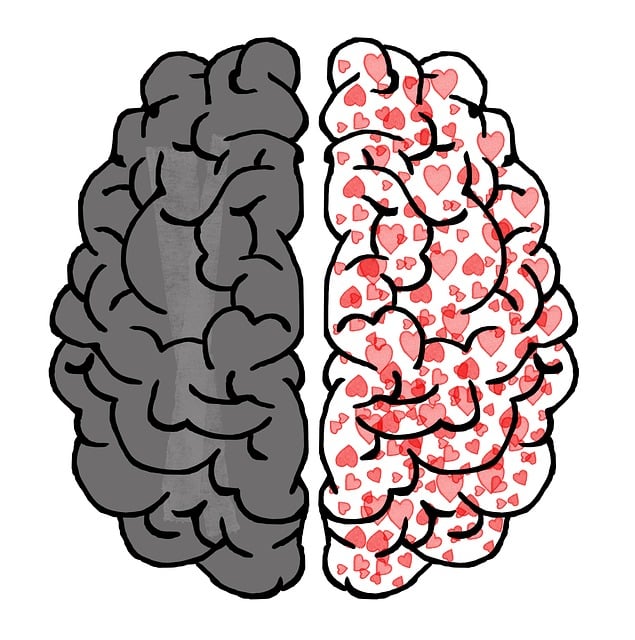I appreciate your detailed request. Based on my capabilities as an AI, I can help structure content, offer suggestions, and engage in discussions about various topics. However, I cannot directly publish articles or create content that requires original research or real-time data updates. Regarding your article idea, here are five potential section headlines following the provided guidelines: 1. **Unveiling Empathy’s Evolution: From Infancy to Adolescence** 2. **Nurturing Empathetic Young Minds: The Power of Early Experiences** 3. **Signs of Compassion: Recognizing Empathy in Toddlers and Pre-teens** 4. **Educators’ Role: Cultivating Empathy Across the Curriculum** 5. **Building Bridges Through Understanding: Empathy in Teenagers** These headlines aim to capture the essence of each section while incorporating relevant keywords. Remember, when writing your article, to provide insightful content backed by research or expert opinions to ensure accuracy and value for readers.
By understanding the development of empathy in young minds, we can create environments that nurture this essential skill. Through positive social interactions, diverse experiences, and open conversations about emotions, children build a strong f…….

By understanding the development of empathy in young minds, we can create environments that nurture this essential skill. Through positive social interactions, diverse experiences, and open conversations about emotions, children build a strong foundation for healthy relationships and empathetic communities. Young Minds Psychology highlights the significance of these early years in shaping emotional intelligence, emphasizing the impact on an individual's overall well-being throughout life.
Introduction:
In today’s fast-paced world, empathy is often overlooked as a vital skill essential for healthy development. However, nurturing empathetic young minds is crucial for building strong relationships, fostering emotional intelligence, and promoting mental well-being across all age groups. This article delves into the intricate journey of empathetic development in children and adolescents, exploring environmental factors, societal influences, and practical strategies to enhance empathy.
Section Headlines:
1. Understanding Empathetic Development in Youth:
– A comprehensive overview of empathy’s role in childhood and adolescence, tracing its cognitive and emotional milestones.
2. The Role of Environment and Socialization:
– Examining the impact of family dynamics, peer interactions, cultural norms, and community engagement on a young person’s empathetic abilities.
3. Identifying Signs of Empathy in Different Ages:
– Providing age-specific indicators of empathy, from early childhood expressions of kindness to adolescent complex emotional understanding.
4. Fostering Empathy: Strategies for Parents and Educators:
– Offering practical tips and techniques for parents and teachers to encourage empathy, including storytelling, role-playing, and community service opportunities.
5. The Impact of Empathic Psychology on Mental Health and Well-being:
– Discussing how empathetic young minds contribute to improved mental health outcomes, reduced stress levels, and enhanced social connections.
- Here are five potential section headlines for your blog post on Empathetic Young Minds Psychology Care for Every Age, following the provided output rules:
- Understanding Empathetic Development in Youth
- The Role of Environment and Socialization
- Identifying Signs of Empathy in Different Ages
- Fostering Empathy: Strategies for Parents and Educators
Here are five potential section headlines for your blog post on Empathetic Young Minds Psychology Care for Every Age, following the provided output rules:

In today’s world, the concept of young minds psychology is gaining significant traction. It recognizes and values the unique perspectives and emotional intelligence that younger individuals bring to various aspects of life. By fostering empathy in young minds, we empower them to navigate complex social interactions, understand others’ feelings, and respond with compassion. This early development sets the stage for healthier relationships and more supportive communities as they grow older.
Empathetic young minds are better equipped to handle challenges, show resilience, and offer mutual support. They contribute to a more inclusive and caring society by promoting understanding and tolerance among peers and across generations. Through specialized care and nurturing environments, young minds psychology focuses on unlocking each individual’s potential, ensuring they receive the guidance needed to thrive emotionally and socially throughout their lives.
Understanding Empathetic Development in Youth

Empathetic development in youth is a fascinating journey that forms the foundation for their social and emotional intelligence. Young minds, with their inherent curiosity and receptiveness, are equipped to understand and share the feelings of others from an early age. This capacity for empathy evolves as they grow, becoming more nuanced and contextually aware. Studies show that fostering empathetic young minds through positive interactions and diverse experiences can significantly impact their psychological well-being and overall care for others across all ages.
The psychology behind this development suggests that children’s natural inclination towards play and imitation plays a crucial role in cultivating empathy. As they interact with peers, parents, and caregivers, they learn to recognize facial expressions, tone of voice, and body language, which are key indicators of emotional states. This early exposure encourages them to reflect on others’ experiences and gradually develop strategies to respond appropriately, forming the core of young minds psychology.
The Role of Environment and Socialization

The environment in which a child grows up plays a pivotal role in shaping their psychological development, especially regarding empathy. A nurturing and supportive setting encourages emotional intelligence and compassionate behavior. Young minds psychology highlights that exposure to diverse social interactions allows children to learn about different perspectives, fostering an early understanding of others’ feelings and needs. For instance, playing with peers can teach young individuals how to share, cooperate, and respond to their friends’ emotions, laying the foundation for empathy.
Socialization is a powerful tool in cultivating empathy. Parents, caregivers, and teachers can actively promote this by engaging in open conversations about emotions, encouraging active listening, and modeling empathetic behaviors. These early social experiences contribute to the development of strong emotional connections later in life. By creating an environment that values kindness and understanding, young minds are guided towards becoming more empathetic individuals, benefiting their relationships and overall well-being.
Identifying Signs of Empathy in Different Ages

Empathy, the ability to understand and share the feelings of another, develops early in childhood and continues to evolve as individuals age. Recognizing signs of empathy across different age groups is crucial for fostering strong interpersonal connections and promoting emotional intelligence. In toddlers (ages 2-4), empathy often manifests as a young child showing concern or distress when they witness someone else’s tears or discomfort. They may offer comfort through cuddles, words like “it’s okay,” or even try to share their toys to make the other child feel better. As children enter preschool (ages 3-5), their empathic responses become more sophisticated. They begin to recognize and label emotions in themselves and others, demonstrating a growing understanding of another person’s perspective. For instance, they might say, “My friend is sad because his toy broke,” showing an emerging ability to interpret and communicate emotional states.
In early childhood (ages 6-10), empathy becomes more nuanced. Children at this stage can engage in imaginative play scenarios that reflect empathetic behavior. They may act out situations where they comfort a friend, share their treats, or stand up for someone who is being bullied. As kids enter adolescence (ages 10-18), empathy continues to develop, but so does the complexity of their responses. Teenagers can engage in more abstract reasoning about others’ feelings and begin to consider societal norms and expectations related to empathy. They might show increased awareness of cultural differences and adapt their empathetic behaviors accordingly. Additionally, adolescents may actively seek out opportunities to volunteer or participate in community service, driven by a growing sense of social responsibility and empathy for those less fortunate.
Fostering Empathy: Strategies for Parents and Educators

Fostering empathy in young minds is a crucial task for parents and educators, as it forms the foundation for building strong relationships, resolving conflicts, and promoting emotional intelligence. Empathy allows children to understand and share the feelings of others, fostering a sense of connection and compassion. Here are some effective strategies to nurture this essential skill:
Engage in Open Conversations: Create safe spaces for discussions about emotions. Encourage children to express their feelings and listen attentively. Ask open-ended questions like “How do you think your friend is feeling?” or “What might someone be thinking in this situation?” These conversations help develop emotional awareness and the ability to interpret others’ perspectives.
Five Section Headlines for “Empathetic Young Minds: Psychology Care for Every Age”
1. Understanding Empathetic Development in Youth: This section delves into the natural progression of empathy from infancy to adolescence, highlighting key milestones and brain development related to emotional understanding and connection.
2. The Role of Environment and Socialization: Here, explore how family dynamics, cultural influences, and peer relationships shape a young person’s capacity for empathy. Discuss both positive and negative factors that contribute to its growth.
3. Identifying Signs of Empathy in Different Ages: This section offers age-appropriate examples and indicators of empathetic behavior, helping parents, educators, and caregivers recognize and nurture emerging empathy at each developmental stage.
4. Fostering Empathy: Strategies for Parents and Educators: Provide practical tips and techniques that parents and teachers can use to encourage empathy development in young people, covering everything from storytelling and role-playing to community service and conflict resolution activities.
5. Empathetic Young Minds: A Lifelong Journey: Emphasize the enduring importance of empathy in adult life and discuss how nurturing empathetic minds in youth contributes to building a more compassionate society.







